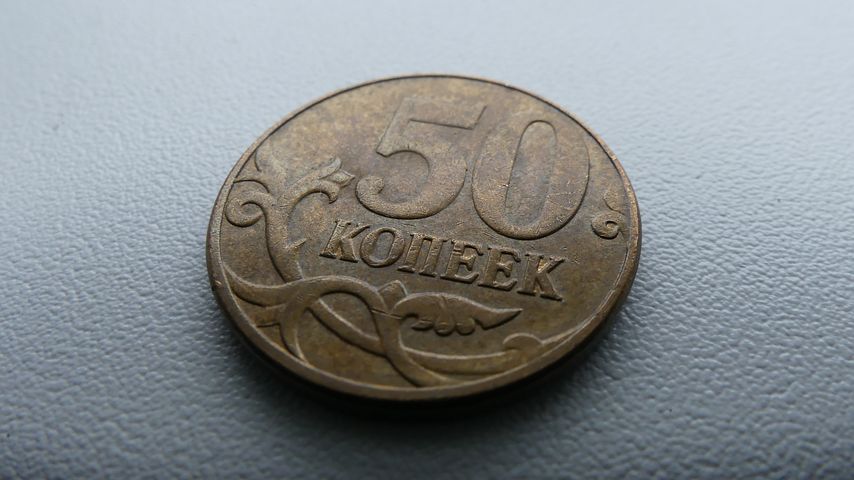Welcome to the latest take of the weekly news at Cryptonewest. We follow the events that transpired July 23 through July 27 and bring you the condensed package. Much transpired this week, from a G20 meeting which mentioned cryptocurrencies, to the United States finally becoming cognizant to a simple truth – the country is behind by as much as four years from China in terms of blockchain technology. A gross oversight that will need to be work around quickly.
Monday, July 23
And so, Monday began with an announcement from former vice president of North American investment banking at JPMorgan Chase. According to Pang Huadong, blockchain may be a necessary stepping stone in order to prevent any mass scale disaster later on.
Mr Huadong believes that the transparency that blockchain invites could be sufficient to create a global model of transparency that will help all parties involved to successfully and clearly track global investment so as to avoid a repeat of the 2008 market collapse which sent the global economy in a tail spin.
Whilst, the technology will need a lot of streamlining to be successfully let to oversee the entire global economy, Mr Huadong believes there’s a point to it. When he started at JPMorgan, for example, only 13 people managed the $40 billion portfolio of the bank. A rather staggering sum.
It’s interesting that Mr Huadong should make such a statement especially when his recent boss, Jamie Damon has been rather vociferous and firmly against cryptocurrencies, albeit he has admitted to the long-term merits of developing a successful blockchain platform.
Tuesday, July 24
Tuesday is here and so is news from the East. South Korea’s KT Corporationwhich is the largest telephone company, announced plans to develop its own commercial network powered by blockchain. Not a surprising announcement in a country which puts great store by developing blockchain and cryptocurrencies to begin with.
KT Corporation wants to tap into the flexibility and transparency that blockchain allows so that it may better protect its nationwide networks. Corporate and individual clients will be allowed to store and transfer data at a quick flick without having to worry about the security of the network itself.
The company will also be powering its roaming services that will also be based on blockchain technology, which is quite the forward-thinking by the company. In essence, the company will have a quick way to crunch all roaming bills in real time and bolster the connectivity across its networks with apparent effortlessness.
Wednesday, July 25
Investment has been flocking to the crypto sector. You have even a sliver of doubt? Then perhaps you would do best to check the crypto-focused merchant bank Galaxy Bank which has managed to concluded $52.5 million for BlockFi, a lending company that provides cryptocurrency.
Galaxy Digital CEO Mike Novogratz quickly shared the news on Twitter, expressing his immense satisfaction with having set foot in the business of lending in cryptocurrencies. Not only that, but the funding round will in all likelihood be sufficient to allow the company to expand its operations overseas.
With the help of Novogratz, BlockFi is primed to gain the momentum it will need to start issuing crypto-based credits, for example.
The interest in blockchain has been growing at a steady pace, so much that even detractors have been ill at ease when it came to presenting counter-arguments. So much has the debate heated that some have called cryptocurrencies junk point blank.
Thursday, July 26
We have known for a while that some of the most serious names in business and finances have long been calling cryptocurrencies, well, trash. Even if they are so robust in their languages, visionaries, such as Ajaypal Banga, the CEO of Mastercard, may have a point when he dishes out a number of warnings against cryptocurrencies.
He has delivered a series of lectures in which he outlined how important it is understand that cryptocurrencies promise to have no good end in sight. For the most part, people will have to come to terms with something very basic – these cryptocurrencies are dangerous and they don’t promise riches of any sorts.
Banga said on one occasion that: “I think cryptocurrency is junk… The idea of an anonymized currency produced by people who have to mine it, the value of which can fluctuate wildly –– that to me is not the way that any medium of exchange deserves to be considered as a medium of exchange.”
Banga is of course true to his words. He made a similar evaluation of the cryptocurrency sector in October for the first time. What troubled Banga the most was the assumed stance of anonymity that Bitcoin and other cryptocurrencies enjoy with such readiness.
According to Banga, not a single person wants to step in and uplift the veil of anonymity, which will probably reveal some pretty gross misuses of this relative secrecy in which the cryptocurrencies have been operating.
But even then, Bitcoin remains one of the securest options out there. Many more assets have come and gone, using the common pump-and-dump strategy to dupe people out of hundreds of thousands of dollars. Meanwhile, a BRICS summit took on the day next.
Friday, July 27
The end of the week is hardly the best time to hold an important summit. Well, this doesn’t seem to have stopped the BRICS member state banks who signed a MoU, or Memorandum of Understanding, over a future distributed ledger technology. An official press release came a little earlier than that in the wee hours.
Now, Brazil, Russia, India, China, and South Africa have all agreed to develop DLT technologies which will allow them relative independence when it comes to managing their digital money supply. The news is rather exciting too, as the countries have been fighting for such an agreement since 2009, at the very onset of blockchain technology, but none of the members appeared too willing to make the first step.
This has recently changed with China’s intensified efforts to create its own digital currency and push away from the control of international institutions created in the image of Washington.
The official press release read as following:
[blockquote]State Corporation Vnesheconombank, Banco Nacional de Desenvolvimento Econômico e Social-BNDES, Export-Import Bank of India (Exim Bank), China Development Bank (CDB), and Development Bank of Southern Africa Limited (DBSA) signed the agreement on collaborative research on distributed ledger and blockchain technology in the context of the development of the digital economy. The document was signed at the 10th BRICS summit in Johannesburg, South Africa.
Collaboration for inclusive growth and shared prosperity in the 4th industrial revolution is key theme of the BRICS summit in Johannesburg. BRICS Interbank Cooperation Mechanism was created in 2010 as a result of cooperation agreement among state export and financial development institutions of the BRICS countries. The creation of the mechanism was initiated by Vnesheconombank and China Development Bank. Member banks of the Interbank Cooperation Mechanism made a significant contribution in the creation of the New Development Bank. In 2020, Vnesheconombank will chair the two organizations: BRICS Interbank Cooperation Mechanism and Interbank Association of the Shanghai Cooperation Organization. The summit will take place in Chelyabinsk.[/blockquote]
An Overview of the Week
This week was most certainly about the importance of blockchain technology in our day-to-day activities. Few have thought it would be possible to make such decisive steps in this technology, given the opposition.
However, as the world is looking to gain a competitive edge over the rest of the globe, it’s understandable why blocks and alliances are formed. Everyone is now striving to come up with the next best thing which will help them stay ahead of the pack and make all the difference in the world they have been hoping for.
The weekend promises to be rather quiet on the Bitcoin front. Some of the titles may prove intriguing, though:
- Cointelegraph published an article about the top crypto deals of 2017 that managed a 136,000% return on the original investment;
- Crypto funds have exceeded 300 operating units, Bitcoin News shared
- CoinDesk analysed the political nature of cryptocurrencies in a short article
The whole picture for the cryptocurrencies is in a violent state of rapid flux. It’s not difficult to see why it’s important to try and stay on top of everything that has been happening.
Of course, the nature of crypto makes it difficult to track all that has been happening, but you will still be able to stay abreast of the latest developments. However, rest assured we bring you the most worth-it cover.



Comments (No)